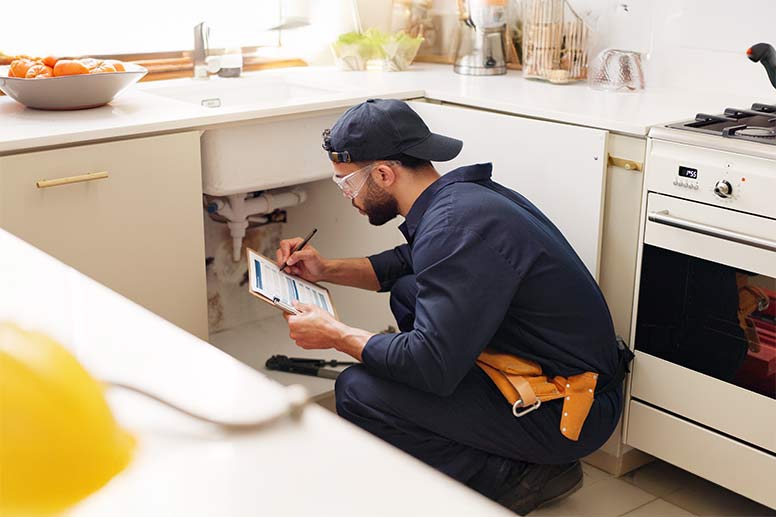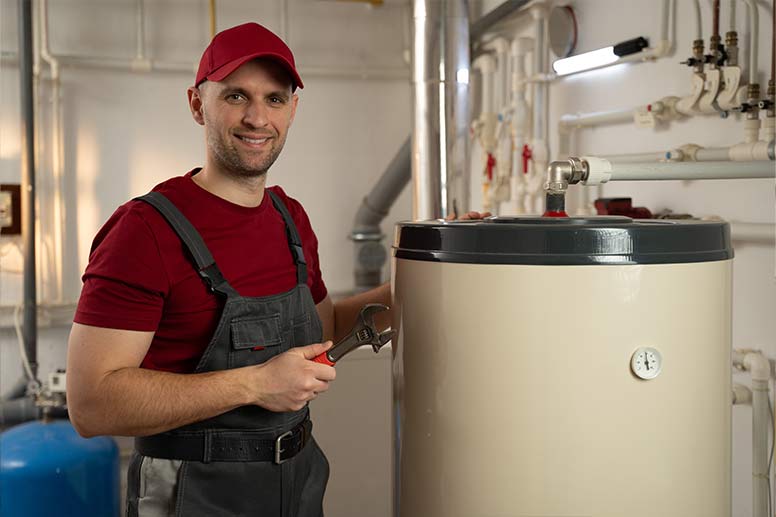How Much do Plumbers Make? 2025 Salary Guide

Table of Contents
- What’s the Average Plumber Salary in 2025?
- Salary by Region: Where Plumbers Earn the Most
- What Factors Influence a Plumber’s Salary?
- How Does Plumbing Compare to Other Trades?
- Job Market Trends and Future Outlook
- How to Increase Your Earning Potential as a Plumber
- Challenges in the Plumbing Industry
- Resources for Aspiring Plumbers
- Final Thoughts
When considering a career in plumbing, one of the first questions you might ask is how much do plumbers make?
As we head into 2025, this guide will break down plumber salaries, explore factors influencing earnings, and provide insights into industry trends.
Plumbing continues to be a reliable and rewarding trade, offering strong job security, competitive salaries, and opportunities, while demand for plumbers continues to grow.
Whether you’re considering this career or looking to advance in the field, here’s everything you need to know about plumber salaries in 2025.
What’s the Average Plumber Salary in 2025?
According to the latest data from the U.S. Bureau of Labor Statistics (BLS), the average annual salary for plumbers, pipefitters, and steamfitters in the United States is $64,810, with most earning between $56,073 and $73,612.
Hourly wages hover around $28.60, but these figures can vary significantly depending on factors like work experience, location, and specialization.
For those just starting out, entry-level plumbers, often apprentices, earn around $52,000 per year. As plumbers obtain some years of experience and certifications, salaries can rise well beyond the national average.
Master plumbers, who achieve the highest plumbing certification level, often earn over $80,000 annually, with some earning six figures in high-demand regions.
RELATED ARTICLE: How To Start A Plumbing Business? 6-Step Guide

Salary by Region: Where Plumbers Earn the Most
Geography plays a significant role in how much plumbers earn. For instance:
- California: Average salary of $88,419, with cities like San Francisco and Los Angeles pushing this number higher due to demand and cost of living.
- New York: Average salary of $73,138, with potential for higher earnings in areas like Manhattan.
- Texas: Average salary of $59,700, with strong growth in metropolitan areas like Austin and Houston.
- Mississippi: Lower average salary of $49,863, reflecting lower demand and cost of living.
Source: indeed.com
In general, urban centers or states with high construction activity and stricter licensing requirements tend to offer higher salaries. On the other hand, rural areas may pay less but could provide lower living costs.
RELATED ARTICLE: How To Price Plumbing Jobs in 2025? The Definitive Guide
What Factors Influence a Plumber’s Salary?
Several variables determine how much a plumber can earn. Here are the most important ones:
1. Experience Level
- Apprentices: Entry-level plumbers often work as apprentices, earning while they learn. Salaries are modest at this stage but grow as skills are developed.
- Journeymen Plumber: After completing apprenticeship programs and obtaining licenses, journeymen plumbers see significant pay increases.
- Master Plumbers: With advanced certifications, master plumbers often supervise projects, run their own plumbing businesses, or specialize in lucrative areas, earning the highest salaries.
2. Certifications
Certifications open doors to higher-paying roles. For example:
- A Master Plumber license not only increases earning potential but also qualifies individuals for supervisory or contracting roles.
- Specialising in gas fitting, pipefitting, or green plumbing (eco-friendly systems) can boost income significantly.
3. Employer Type
Who you work for matters:
- Plumbers employed by large construction companies or government agencies often enjoy higher pay and benefits.
- Self-employed plumbers have more control over rates but must balance costs like insurance and marketing.
4. Industry Demand
New construction, aging infrastructure, and even climate change drive demand for plumbing services. Emerging niches like smart plumbing and sustainable systems create additional opportunities.
RELATED ARTICLE: How To Get a Plumbing License in 2025? 6 Simple Steps

How Does Plumbing Compare to Other Trades?
Curious how plumbing stacks up against other skilled trades? Here’s a quick comparison based on BLS data:
- Electricians: Average salary of $61,590 per year.
- Carpenters: Average salary of $56,350 per year.
- Insulation Workers: Average salary of $49,350 per year.
Plumbing consistently ranks among the more lucrative trades, especially for those who pursue certifications or specialize in areas like pipefitting or eco-friendly solutions.
RELATED ARTICLE: Plumbing Insurance California: Types & Costs
Job Market Trends and Future Outlook
The plumbing industry is evolving, creating exciting opportunities for both new and seasoned professionals. Here’s a look at key trends:
1. Increased Demand
The U.S. Bureau of Labor Statistics projects a 4% growth in plumbing jobs from 2022 to 2032, thanks to a growing population and aging infrastructure.
2. Labour Shortages
Fewer young workers are entering the trades, creating a gap in the workforce. This shortage is driving up wages and making plumbing an even more attractive career choice.
3. Technological Advancements
From smart water systems to eco-friendly technologies, advancements are reshaping the industry. Plumbers who upskill in these areas are well-positioned for higher earnings.
How to Increase Your Earning Potential as a Plumber
Looking to maximize your income? Here are some strategies:
- Pursue Advanced Certifications: Becoming a Master Plumber or specializing in areas like green plumbing can significantly boost your earnings.
- Diversify Your Skills: Consider learning about smart plumbing systems or other emerging technologies.
- Relocate to High-Paying Areas: While moving isn’t feasible for everyone, regions with higher demand often offer better salaries.
Challenges in the Plumbing Industry
Every career has its challenges, and plumbing is no exception. These include:
- Physical Demands: Plumbing often requires heavy lifting, awkward positions for installing and repairing, and long hours. Maintaining physical fitness is essential.
- Licensing Variability: Licensing requirements for plumbers can differ widely across states, which may impact relocation or career progression. Check out the National Association of State Contractors Licensing Agencies (NASCLA) for resources and links to state-specific licensing boards to help you stay on track.
- Safety Risks: Working with high-pressure systems or hazardous materials requires strict adherence to safety protocols.

Resources for Aspiring Plumbers
Interested in pursuing a career in plumbing? Here are some resources to get started:
- Trade Schools: Look for accredited programs in your area. Examples include the United Association (UA) and local community colleges.
- Online Learning: Platforms like Coursera and Khan Academy offer introductory plumbing courses.
- Tools like Invoice Fly: We help plumbers streamline invoicing and manage their businesses more effectively.
Final Thoughts
As we move into 2025, plumbing remains a stable and rewarding career choice.
Offering competitive pay, job security, and diverse opportunities, it’s a profession with long-term potential. Whether you’re just starting out or looking to advance your career, plumbing offers both financial stability and room for growth.
Take the first step today—invest in certifications, explore emerging niches, or even start your own business.
Ready to streamline your operations and focus on growth?
Download Invoice Fly today!

